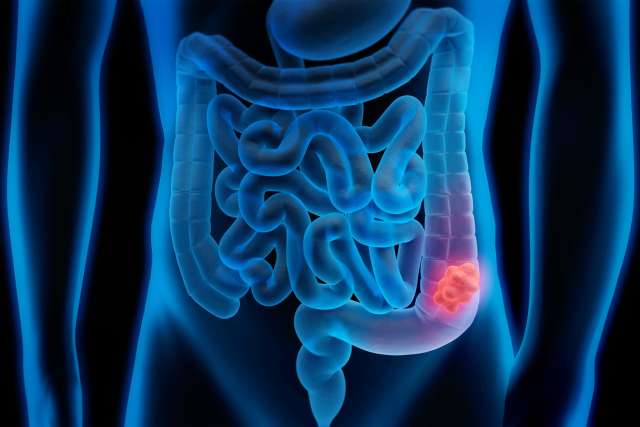Colorectal Cancer
At UCLA Health, we combine our world-renowned expertise with empathetic, high-quality colorectal cancer care.

Why choose UCLA Health for colorectal cancer care?
UCLA Health is ranked as one of the nation's Best Hospitals in cancer by U.S. News & World Report. We provide colorectal cancer treatment and screening through the (JCCC). The JCCC is consistently recognized for excellence in research and outstanding patient care.
Our colon cancer specialists offer expertise and unwavering support through every stage of your cancer journey. At UCLA Health, you will find:
A nationally recognized team: Our innovative UCLA colorectal surgeons are leaders in their field.
Comprehensive, compassionate care: Our physicians take time to ensure that you understand your diagnosis and know what to expect from your care. We aim to make you and your loved ones as comfortable as possible throughout your colorectal cancer treatment.
Convenient locations: We offer colon and rectal cancer services in multiple locations across the greater Los Angeles region. At UCLA Health's community cancer care centers, you receive the highest quality care, close to home.
Our services
UCLA's Colorectal Cancer Treatment Program offers comprehensive services, including:
Colorectal Cancer Diagnosis
A diagnosis gives us a starting point. We use the latest technology to detect colorectal cancer symptoms and diagnose cancer quickly so that we can start treatment right away.
Colonoscopy: A procedure that allows your doctor to use a colonoscope to examine the inside of your lower digestive tract, known as your colon and rectum. During a colonoscopy, your doctor finds and removes precancerous growths (polyps) and early colorectal cancers .
Digital rectal exam: An examination in which a doctor inserts a gloved finger into the rectum to feel for lumps.
Barium enema: An imaging test in which a doctor inserts liquid into the rectum, searching for polyps or growths in the colon and rectum.
Sigmoidoscopy: A procedure in which a doctor uses a sigmoidoscope to take images inside the rectum and lower part of the colon.
Biopsy: A procedure to extract a small tissue sample of a tumor and then look at it under the microscope.
Cancer genetics
You can inherit certain types of colorectal cancers, such as Lynch syndrome. That's why UCLA Health's Colorectal Cancer Program offers genetic testing, counseling and guidance. Our specialists evaluate factors that increase your risk and help you make important decisions about your health. Learn more about our cancer genetics program.
Colorectal cancers we treat
Colorectal cancer occurs when cells in the colon or rectum grow out of control. Starting as a small growth, or polyp, in the colon or rectum, colorectal cancer can spread to other parts of your body. We treat all types of colon and rectal cancers including:
Adenocarcinoma: The most common type of colon cancer, adenocarcinoma starts in the glands that line the colon.
Carcinoid tumors: A rare type of colorectal cancer, a carcinoid tumor is usually slow-growing and often symptom-free for years. Also called a neuroendocrine tumor, these tumors start in the colon's hormone-producing cells.
Gastrointestinal stromal tumors (GIST): A GIST begins in the nerve cells of the gastrointestinal (GI) tract wall. A rare type of colorectal cancer, GISTs can be slow or fast growing.
Lymphoma: An immune system cancer that can begin in the lymph nodes located in the colon or rectum.
Sarcoma: A colorectal cancer that begins in blood vessels, muscle layers or other connective tissues of the colon and rectum walls. Learn more about sarcomas.
Treatments we offer
Whether you need minimally invasive surgery or a complex treatment plan, UCLA Health offers the most advanced treatments available, including:
Nonsurgical colorectal cancer treatments
Doctors can treat some types of colorectal cancer tumors with non-surgical treatments.
Chemotherapy: Powerful cancer-killing drugs. Chemotherapy is often used in conjunction with radiation to shrink tumors before surgery.
Radiation therapy: The use of high-energy radiation beams to shrink tumors before surgery.
Immunotherapy: A drug regimen that recruits your body's immune system to fight against the cancer. Immunotherapy medicines can be injected under the skin or into the muscle, administered intravenously or taken orally.
Targeted therapy: Also called biologic therapy, these drugs attack specific cancer cells to stop tumors from growing, without harming normal cells.
Colon cancer surgery
Our specially-trained experts specialize in a range of surgical procedures to treat colorectal cancers. These include:
Local excision: A minimally invasive surgery for early-stage colorectal cancers. Local excision uses a colonoscope to remove small cancerous tumors in the colon.
Laparoscopic surgery: A minimally invasive surgery technique for performing resection. Laparoscopic surgery involves a shorter recovery and is less painful than traditional surgery.
Resection: Surgery for advanced cancers to remove the portion of the colon that contains cancer, along with nearby healthy tissues and lymph nodes. It may also require an opening outside of the body (colostomy) to allow waste to pass to an external bag.
Meet our team
With well-known leaders in the fields of colon and rectal cancers, our team offers leading-edge care from diagnosis to recovery.
Contact us
Call to request an appointment with a colorectal cancer specialist at UCLA Health.
Find your care
Our colorectal cancer specialists have the experience and expertise you can trust. For more information, connect with a cancer care specialist at .
